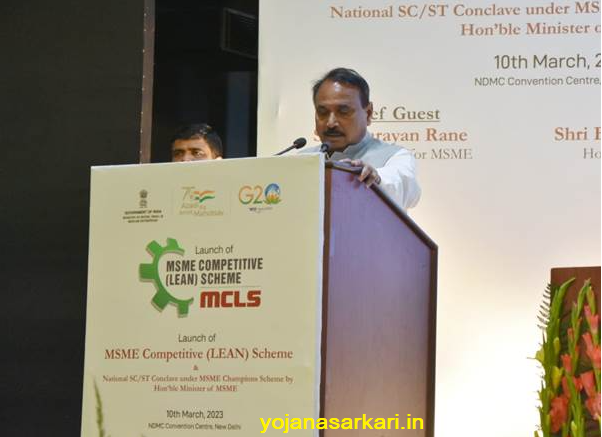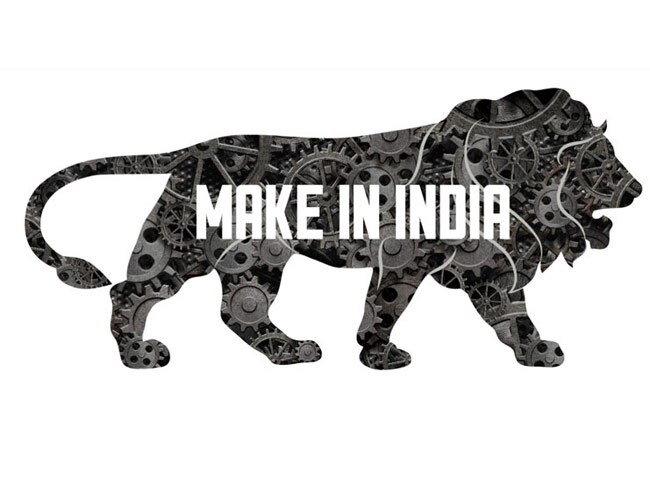MSME Competitive LEAN Scheme:-
On Friday, Narayan Rane, the union minister for small and medium companies, unveiled the MSME Competitive (LEAN) program. The government improved the MSME Competitive Scheme to benefit enterprises and stakeholders. Under the revamped arrangement, the Centre will bear 90% of the implementation costs for handholding and consultancy fees, up from 80% under the old one. The government has also removed the need to install a special-purpose vehicle in each cluster. To learn more about the MSME Competitive (LEAN) Scheme, including its highlights, objectives, features, benefits, assistance, application process, and much more read this article till the end.

MSME Competitive LEAN Scheme 2024
MSMEs will receive assistance under the Plan to reduce production costs through effective personnel management, better space utilization, scientific inventory management, improved process flows, reduced engineering lead times, and other methods. LMCS also improves product quality and lowers pricing, both of which are crucial for competing in both domestic and international markets. Larger enterprises in India have used LMCS to stay competitive, but MSMEs have traditionally shunned such programs since they are mostly ignorant of the benefits. Furthermore, qualified and effective Lean Manufacturing Counsellors or Consultants are difficult to locate and expensive to pay, resulting in the majority of MSMEs being unable to finance LMCS. The program has been approved as a pilot project for the use of lean concepts in 100 small clusters.
| Article About | MSME Competitive (LEAN) Scheme |
| Introduced by | Narayan Rane, the union minister for small and medium businesses |
| Introduced on | 10-March-2023, Friday |
| Objective | The MSME Competitive (LEAN) plan was changed by the government to be more beneficial to enterprises and stakeholders. |
| MSME Official Website | msme.gov.in |
Objective
The major purpose of the Lean Manufacturing Competitiveness Scheme (LMCS) is to increase manufacturing competitiveness in the MSME sector. Lean manufacturing uses lean techniques (such as Total Productive Maintenance (TPM), 5S, Visual control, Standard Operating Procedures, Just in Time, Kanban System, Cellular Layout, Poka Yoke, and others) to identify and eliminate waste and streamline a system. The fundamental objective is to have the entire process work smoothly, not just a few individual processes. The initiative also lays a heavy focus on employee empowerment.
Features and Benefits
Some of the key features and benefits of the MSME Competitive (LEAN) Scheme are as follows:
- In addition to striving to improve quality, productivity, and performance, the initiative seeks to shift manufacturers’ mindsets.
- This program is part of a larger effort to improve MSMEs’ awareness of LEAN manufacturing practices, to inspire and reward them for doing so, and to encourage them to become MSME champions.
- MSMEs can drastically reduce waste, increase productivity, improve quality, operate safely, expand their market reach, and eventually become competitive and profitable.
- MSMEs will use LEAN manufacturing technologies such as 5S, Kaizen, KANBAN, Visual Workplace, and Poka Yoka to attain LEAN levels such as basic, intermediate, and advanced under the skillful direction of educated and competent LEAN consultants.
- To assist MSMEs, the government will fund 90% of the implementation costs for coaching and consulting services.
- The government stated that MSMEs that are members of SFURTI clusters, owned by women, SC, or ST, and located in NER will receive an additional 5% contribution.
- After clearing all stages, MSMEs who register through Industry Associations/Overall Equipment Manufacturing (OEM) organizations will earn an additional 5% contribution.
MSME Competitive (Lean) Planning Approach
The method comprises employing Lean production Consultants (LMCs) to examine the Mini Cluster member units’ present production systems and to establish detailed step-by-step timeframes and processes for implementing lean techniques. Each cluster will have its own Special Purpose Vehicle (SPV). MSMEs are expected to continue the Scheme on their dime beginning in the second year after learning about the benefits and cost savings that emerge from LM methods. The implementation structure is three-tiered, with a group of roughly 10 MSMEs (SPV) at the lowest local tier and a Lean Manufacturing Screening and Steering Committee (SSC) under DC(MSME) at the top. The intermediate-tier National Monitoring and Implementing Unit (NMIU) is in responsible for facilitating Scheme implementation and oversight. The National Productivity Council (NPC) will be the NMIU for the Pilot phase of 100 Micro Clusters.
MSME Competitive (LEAN) Scheme Assistance
The Indian government would fund up to 80% of the consultant fees for each Mini Cluster. The remaining 20% is the responsibility of the beneficiaries’ MSME units.
MSME Competitive (LEAN) Scheme Apply
The National Productivity Council (NPC), Utpadakta Bhawan, Lodhi Road, New Delhi-110003, accepts applications in the prescribed format from interested industry associations or groups of approximately 10 MSME units that meet the MSME-Development Act, 2006 and wish to form SPVs (Mini Clusters).
Contact Details
In this article, we have given all the details regarding this scheme. Still, if you want to know any other information or complaint about this scheme then, feel free to contact below-given details:-
| Name | Designation | Phone Number |
| Mr. Subrata Pal | Director, NPC | 9953850301, 011-24607316 |
| Mr. Jaipal Singh | Deputy Director, Office of the DC(MSME), | 011-23061461 |



